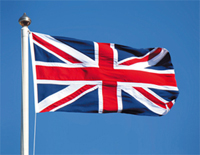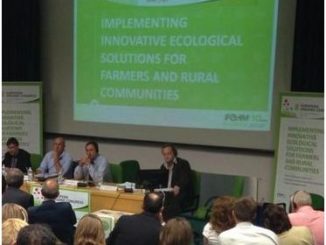What if great growing soil was under threat from development – how would you respond? Two artists took a specific path, one that helped people engage with the issue in novel ways. And in so doing, they brought different people – from across a wide spectrum – together to get to know that earth beneath their feet a little better. Find out about the Soil Sisters of the English city of Bristol. Mario Catizzone tells us about it.
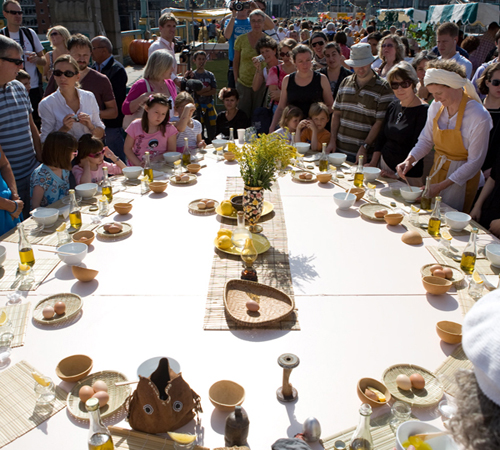
Bristol is located in South West England and has a population of 441,300 (2011). With a growing green economy, Bristol is the UK’s greenest city, easily accessible with very good air quality. Thanks to its environmental programs and projects it is the winner of the 2012 European Eco Management Audit Scheme (EMAS) Award for water efficiency and quality. Furthermore, it is the winner of the title European Green Capital for 2015. Clearly, there has been a long-term commitment to environmental issues involving a large number of people in this city.
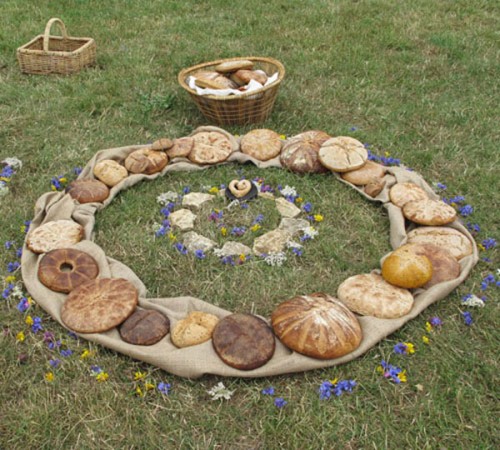
And yet, a new road route threatened to destroy fertile, food producing soil. The MetroBus route was to be build upon part of the Blue Finger. According to the Blue Finger Alliance “The Blue Finger is a hugely important piece of high quality agricultural land coming out of the north fringe of the city of Bristol, south west England. Measuring about 20km long by an average of 500m wide, this strip of exceptionally deep and fertile soil runs from Stapleton in Bristol, alongside the M32 and out beyond Winterbourne in South Gloucestershire. It is of great local and national significance in that it features precious and rare Grade 1 agricultural land although small parts of the Blue Finger are also grades 2 and 3a. (1, 2 and 3a are what’s known as Best and Most Versatile (BMV) Agricultural land).”
A call went out from the Blue Finger Alliance and Rising Up to protect this soil. People responded.
A dedicated group of citizens decided to illustrate, communicate and organise around the protection and celebration of a specific substance – soil.
A programme spanning 2 months honouring soil was organised by Touchstone collaborations, a socially engaged arts research practice dedicated to ecological thinking for sustaining cultures in balance with nature. As ecological artists-researchers, the approach is responsive, emergent and trans-disciplinary. Their commitment is to evolving ecologies of relationships and as such is inspired by the living cycles of soil, food and water.
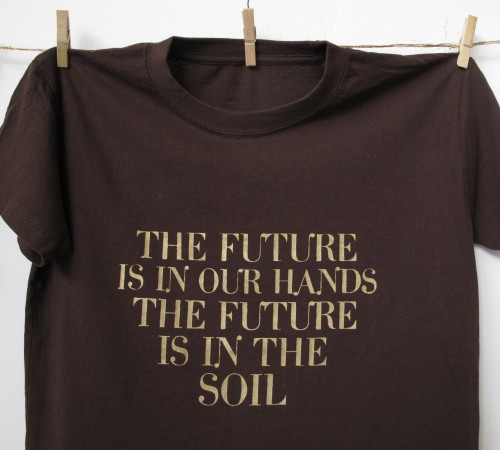
Miche and Flora of Touchstone collaborations choreograph convivial hearths and food rituals to enliven the senses and the sacred in the everyday. These Tables of Transformation and Forums of Inspiration are listening spaces which draw on the gold of imagination, inspiring conversations and embodying living forms of thinking.
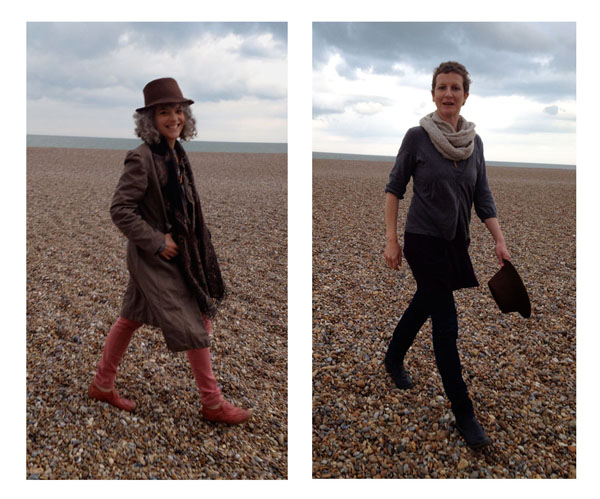
Their collaborative work engages across the arts and sciences and includes partnerships with a diversity of organisations, educational institutes and research centres.
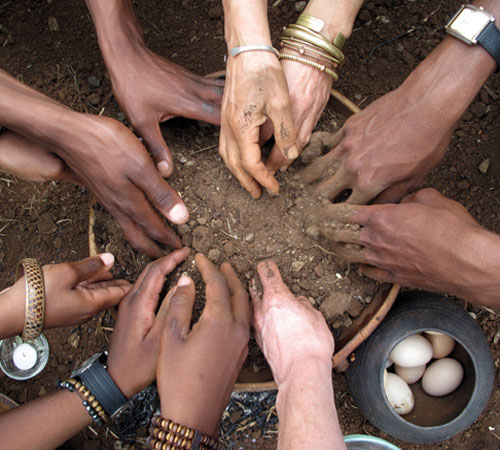
Over the years, Touchstone collaborations with their partnerships have explored and evolved many different communication experiences in UK and in Africa. Many are relevant for those that would like to approach the soil thematic in an artful and practical way.
Soil Saturdays was in celebration of the International Year of Soils 2015. It was co-created with Daphne Lambert of the Greencuisine Trust for Soil Culture at Create.
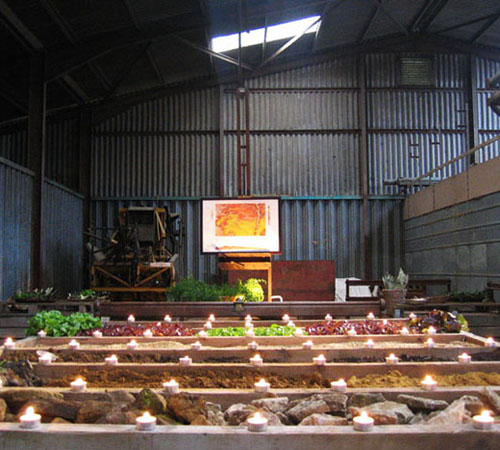
From 4th July to 26th August 2015, in Bristol, exhibitions on soil matters opened from 10am to 5pm Monday-Saturday. Each Soil Saturday was reserved for special sessions on interweaving aspects of the soil accompanied by organic brunches with local seasonal food and inspired by healing culinary traditions. During the eight Soil Saturdays, people experienced the soil’s significance for the health of body, community and planet. The sequence of Soil Saturdays:
i) Soil Interdependence Day; ii) What is Soil?; iii) Soil of Bristol; iv) Living Soil Living Food; v) Growing Soil; vi) Whose Soil; vii) Fallow Field; viii) Art of Soil.
On one of these Soil Saturdays, Soils of Bristol was the bringing together of soil and food campaigners, geographers, city planners, politicians, local food producers, soil scientists, artists and cooks who together midwived the Bristol region Declaration for Soil: a shared public document to engage people, researchers and politicians to protect soils for present and future generations. In other words to enable all to become food citizens and active guardians of soil.
In the end, the MetroBus route has gone ahead, with much destruction, despite opposition. However concessions were gained. Blue Finger Soil is better recognised. Some Blue Finger Soil is to be dedicated to community food production backed with a 999 year lease from Bristol City Council. Actions to protect Bristol’s soil are also written into Bristol’s Good Food Plan. In fact, its all over the plan. Whereas soil is mentioned once in the previous plan, its mentioned 42 times in the current one.
Soil Saturdays-the art of connecting with soil through food from Flora Gathorne-hardy on Vimeo.
More




